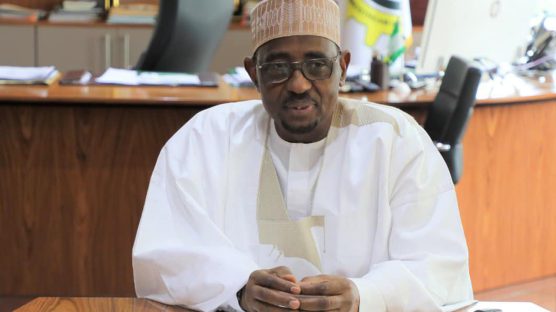...
Kaduna Refinery hits 81% completionBy Seun IbiyemiWith global crude oil prices continuing their sharp downward trend, the Chief Executive Officer of the Nigerian Midstream and Downstream Petroleum Regulatory Authority (NMDPRA), Farouk Ahmed, has raised serious concerns about the broader economic implications for Nigeria, a country still heavily reliant on petroleum revenues.Speaking during a “Meet-the-Press” session hosted by the Presidential Communications Team at Aso Rock Villa, Abuja, Ahmed cautioned that although consumers might temporarily benefit from cheaper fuel, the long-term repercussions for the national economy are deeply troubling.“As consumers, we may be pleased that prices are dropping,” he said.

“But as a country dependent on oil revenue, falling prices spell trouble. Our inflows are directly affected.”Ahmed referenced a recent plunge in global crude prices, citing a dramatic drop from $73 to $60 per barrel in a single day, which he attributed to erratic shifts in international energy policy.
He criticised the volatility fuelled by past policy swings, particularly under former U.S. President Donald Trump, for disrupting market stability and undermining the ability of oil-exporting nations to plan effectively.
“Traders are operating in survival mode now,” he explained, pointing to a combination of increased U.S. domestic output and selective waivers that have skewed global supply dynamics.
“Developing economies like ours are the ones bearing the brunt.”Domestically, Ahmed drew attention to entrenched challenges facing the oil sector, such as pipeline vandalism and underperformance in crude production. Nigeria’s current output sits at 1.
4 million barrels per day, far below potential.“If we’re losing $10 per barrel at our present production rate, the blow to our economy, reserves, and the strength of the naira is significant,” he warned.Amid the economic headwinds, however, he pointed to some encouraging signs in Nigeria’s refining sector.
Daily imports of petrol have dropped by 67 percent—from 44.6 million litres in August 2024 to 14.7 million litres as of April 13, 2025.
This reduction is attributed to increased local refining, driven by the progressive reactivation of the Port Harcourt Refinery and output from smaller modular facilities. Domestic production now stands at 26.2 million litres per day.
Despite this progress, the country’s national target of 50 million litres per day has only been met twice in recent months. As of mid-April, supply was at 40.9 million litres per day.
Ahmed acknowledged the rising influence of the Dangote Refinery, which now supplies up to 40 percent of national demand, but noted that the Nigerian National Petroleum Company Limited (NNPCL) has fully exited the fuel distribution chain.He provided further insight into the state of Nigeria’s refining capacity, stating that the country currently has 10 active refineries with a combined capacity of 1.12 million barrels per day, the majority of which comes from private operators.
On the Kaduna Refinery, he confirmed that the overall project is 81.1 percent complete, with progress tracked through segmented work packages. However, he cautioned that completion of the refinery alone will not be sufficient, as the condition of the pipeline infrastructure remains a separate and critical concern.
“What’s unique about Kaduna Refinery is that even if we hit 100 percent completion, we still need to address the pipeline system. That’s a major undertaking on its own,” he explained.Despite the issuance of 47 licences to establish refineries and 30 for construction, only four refining facilities are currently up and running.
In his closing remarks, Ahmed called for stronger coordination between the government and private sector stakeholders to navigate the volatile energy landscape ahead.“This is the state of the global energy market today,” he said. “As a country, we need to respond wisely—ensuring that while the public benefits from lower prices, our economy remains stable and future-proof.
”The post Oil price slide puts Nigerian economy at risk — NMDPRA Chief appeared first on Nigerian NewsDirect..
Technology

Oil price slide puts Nigerian economy at risk — NMDPRA Chief

...Kaduna Refinery hits 81% completion By Seun Ibiyemi With global crude oil prices continuing their sharp downward trend, the Chief Executive Officer of the Nigerian Midstream and Downstream Petroleum Regulatory Authority (NMDPRA), Farouk Ahmed, has raised serious concerns about the broader economic implications for Nigeria, a country still heavily reliant on petroleum revenues. Speaking during [...]The post Oil price slide puts Nigerian economy at risk — NMDPRA Chief appeared first on Nigerian NewsDirect.















